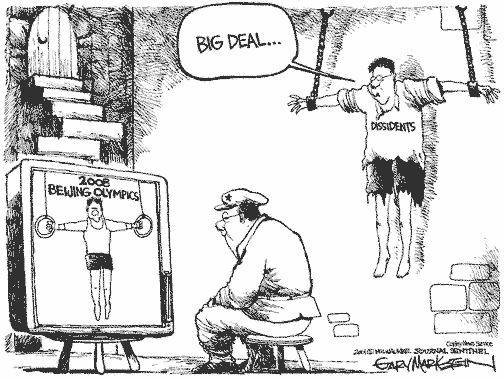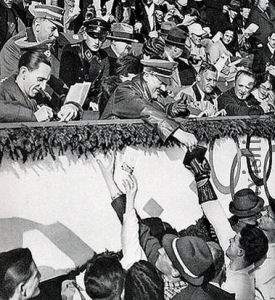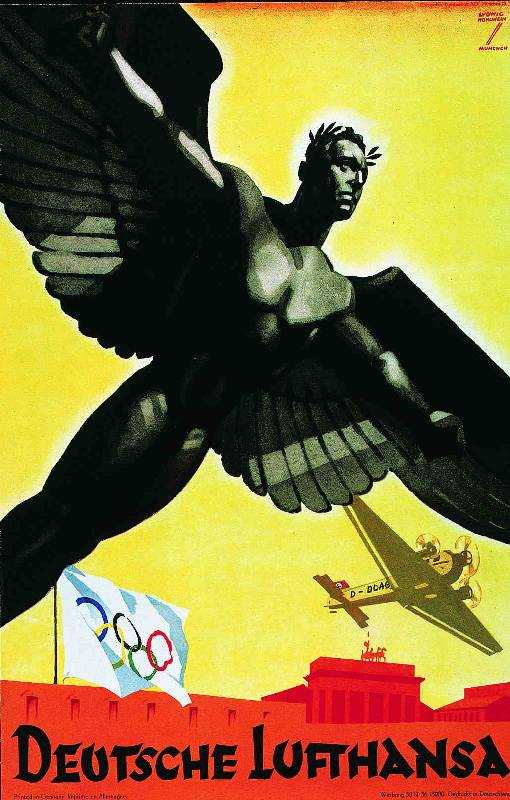

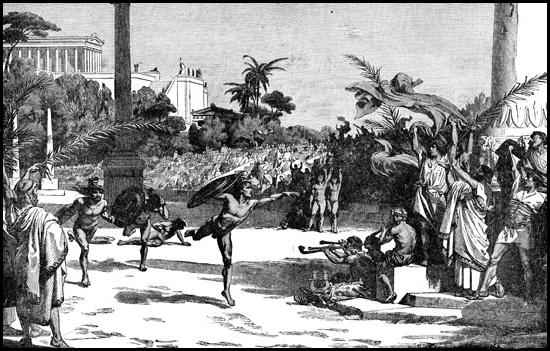
"The Greeks were outstanding among the peoples of the ancient world for their love of athletics. In 776, we are told, the athletic and military games for the festival of Zeus at Olympia in the western Poloponnese were organized as a Panhellenic contest, recurrent every fourth year. Soon victory in these games became one of the highest honors of the Greek world. Other religious centers followed suit. Song and dancing were parts of the worship of the Greek gods. Contests in music and poetry were held at the shrine of Apollo in Delphi. Civic festivals with 'games' were similarly developed, notably the festival of Athena at Athens. And all these contests were means of gaining honor. Athletic and military concern alike focused attention on the male body. Since every citizen from twenty to forty-nine, if not a cripple, was liable to military duty and would have to stand in combat every few years, most cities prescribed athletic training as a form of military preparedness." From 'The Columbia History of the World' by J. A. Garraty and P. Gay.

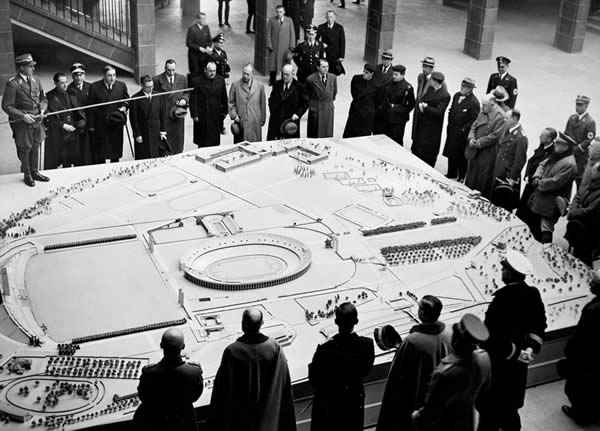
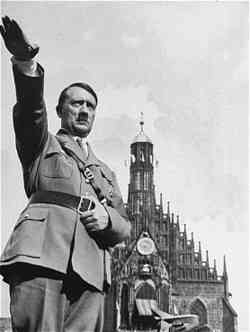
"The practice of sport is a human right. Every individual must have the possibility of practising sport, without discrimination of any kind and in the Olympic spirit, which requires mutual understanding with a spirit of friendship, solidarity and fair play...Any form of discrimination with regard to a country or a person on grounds of race, religion, politics, gender or otherwise is incompatible with belonging to the Olympic Movement." From the Olympic Charter.
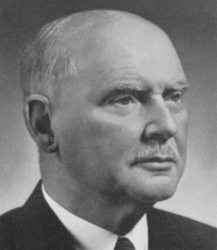
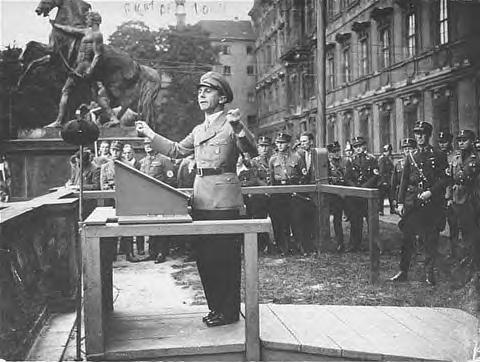
March 28, 1933: Dr. Lewald meets with Reich Propaganda Goebbels, who pledges to promote the Olympic games in Germany.
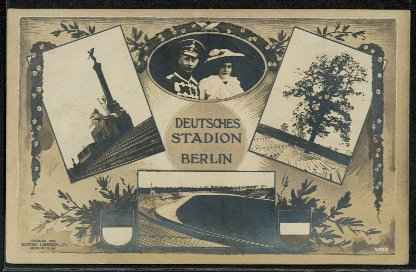
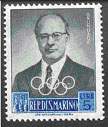



1933: Avery Brundage, president of the American Olympic Committee: "The very foundation of the modern Olympic revival will be undermined if individual countries are allowed to restrict participation by reason of class, creed, or race."
"Participation in these games must not be construed to be an endorsement of the policies and practices of the Nazi government and the anti-boycott forces. Measures have been adopted to ensure that there will be no violation of the fundamental principles of fair play and sportsmanship, or the Olympic standards of freedom and equality to all." -Avery Brundage."
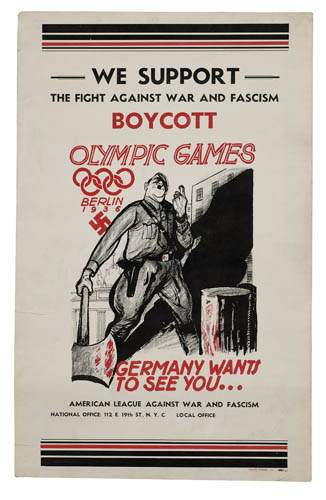
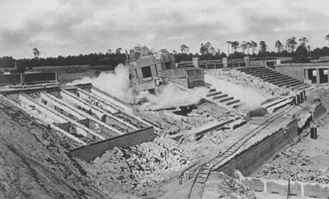
March 1934: To make way for construction of the Olympic Stadium, the demolition of the Berlin horse race track and the National Stadium begins. The gigantic mountain of dirt created by excavating the construction pit will be used to erect the so-called 'Westwall.'
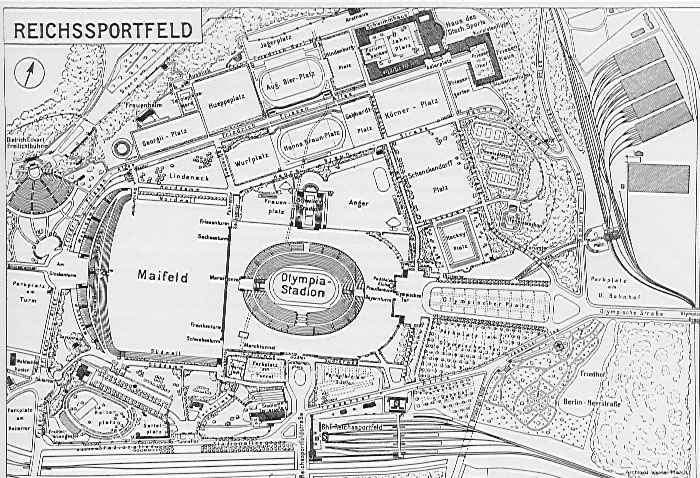

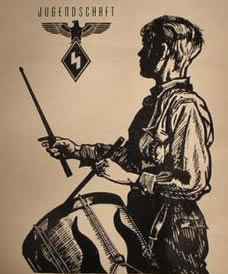
July 3, 1935: From an article in Schwartze Korps (Black Corps): "...there was criticism of the fact that in Berlin a group of Jewish women competed with a group of sports women of the police sports clubs of Berlin. We have investigated this fact and are glad to announce that all the members who have participated in this game have been excluded from German sports organizations."
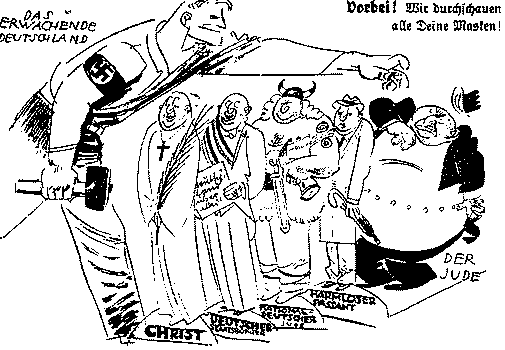
August 6, 1935: The Reich Sport Commissar announces that sports clubs in Germany will set aside the month of October for teaching anti-Semitism.
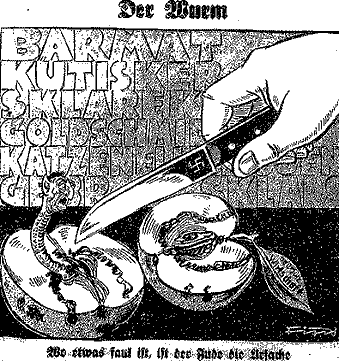
September 15, 1935: The Nürnberg Laws deprive Jews of German citizenship.
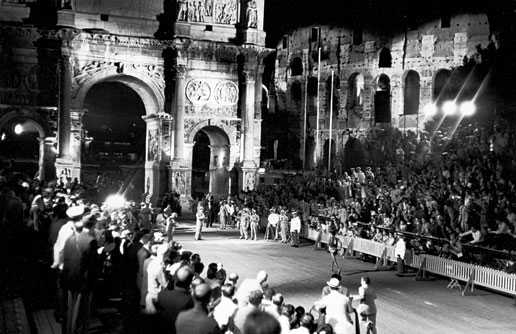
November 25, 1935: “Neither Americans nor the representatives of other countries can take part in the Games in Nazi Germany without at least acquiescing in the contempt of the Nazis for fair play and their sordid exploitation of the Games.” - Ernest Lee Jahncke, American member of the IOC, in a letter to IOC President Count Henri Baillet-Latour.
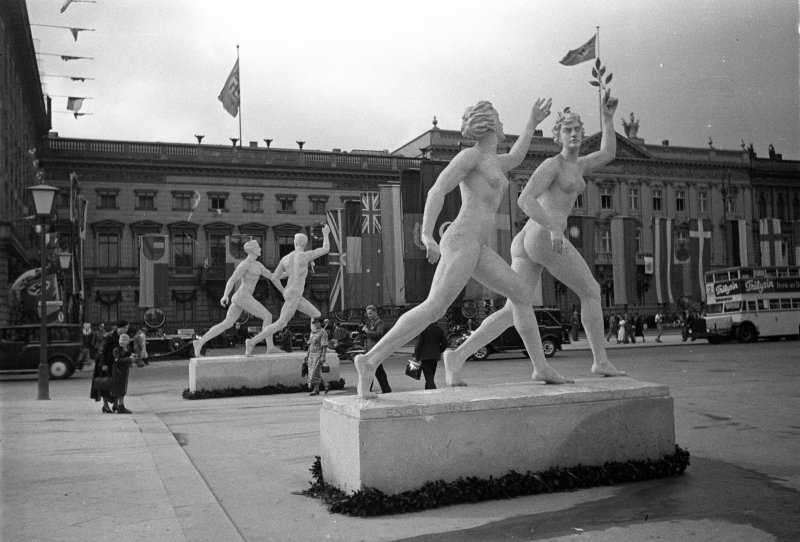
Interestingly, one of the most anti-boycott sections of American public opinion was African American newspaper’s, noting the hypocrisy of White America's discrimination against Black athletes in the United States. It was in this forum that the theory that beating the Nazis in their own game by fielding more Black athletes from the US than ever before in the Games, with a commensurate increase in medals earned by these 'inferiors,' would put the lie to Nazi Racist assumptions. Two Black women and 16 Black men would eventually make their way to Berlin, three times the number that had participated in the 1932 Games. Their performance would make history and give anti-Nazis their only cause for cheer in what would become a triumph for Hitler's Germany.
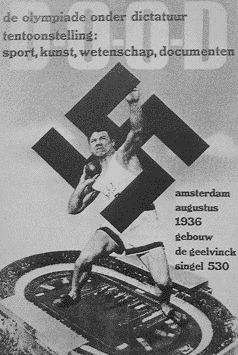
December 8, 1935: The Amateur Athletic Union defeats the proposal to boycott the Olympics by 2.5 votes.
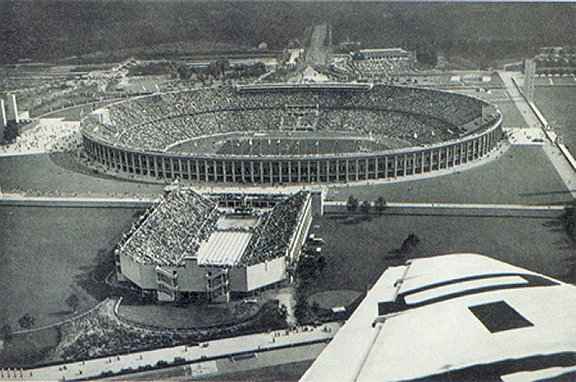
"Frentic building work, painting, renovation, and refurbishment aimed at offering the most attractive appearance possible to Berlin, the city of the Games. The center-point was the new Olympic Stadium. Hitler had angrily denounced the original plans of the architect Werner March as a 'modern glass box,' and, in one of his usual childlike temper tantrums, had threatened to call off the Olympics altogether. It was probably a device to make sure he got his own way. And like pandering to a spoilt child, those around him made sure he was not disappointed. Speer's rapidly sketched more classically imposing design immediately won his favor. Hitler was more than assuaged. Now fired with enthusiasm, he demanded at once that it should be the biggest stadium in the world - though even when under construction, and outstripping the size of the previous largest stadium at Los Angeles, built for the 1932 Games, he complained that everything was too small." --Ian Kershaw, from 'Hitler 1936-1945 Nemesis.
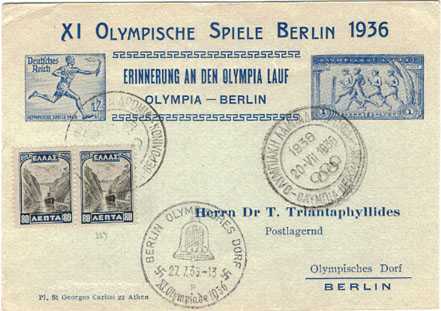

February 6-16, 1936: Germany hosts the Winter Olympics at Garmisch-Partenkirchen in the Bavarian Alps.
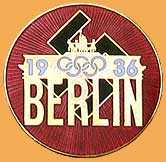
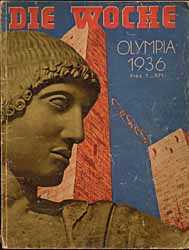
March 7, 1936: France announces that it will not send a team to Berlin after Hitler sends the Wehrmacht back into the demilitarized Rheinland. After much hand-ringing and excited verbiage, France will ultimately send a team to Berlin.
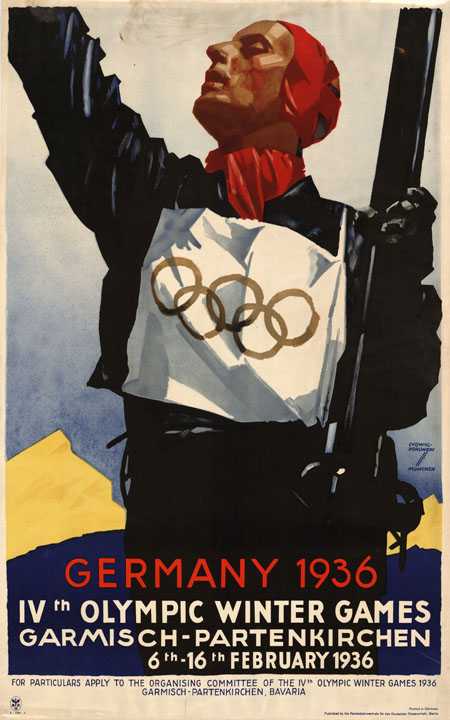
July 16, 1936: In the continuing effort to clean up Berlin in preparation for the Olympics, some 800 Gypsies are arrested and interned under police guard in a special Gypsy camp in the Berlin suburb of Marzahn.
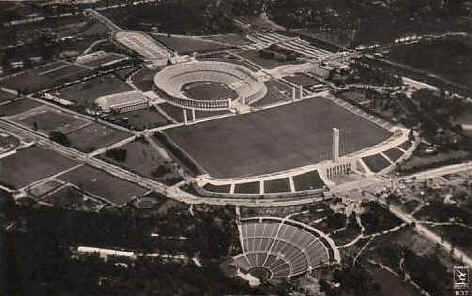
July 16, 1936: From a directive of the Reich Press Chamber under Joseph Goebbels's Ministry of Propaganda: “Press coverage should not mention that there are two non-Aryans among the women: Helene Mayer (fencing) and Gretel Bergmann (high jump and all-around track and field competition).”
July 19-26, 1936: An alternate competition, the Peoples' Olympiad, is held in Barcelona, Spain. Labor unions and socialist parties from around the world attend, despite the ongoing Spanish civil war. The US sends representation, as does the UK and France. German and Italian teams, comprised of exiled communists and socialists, also compete.
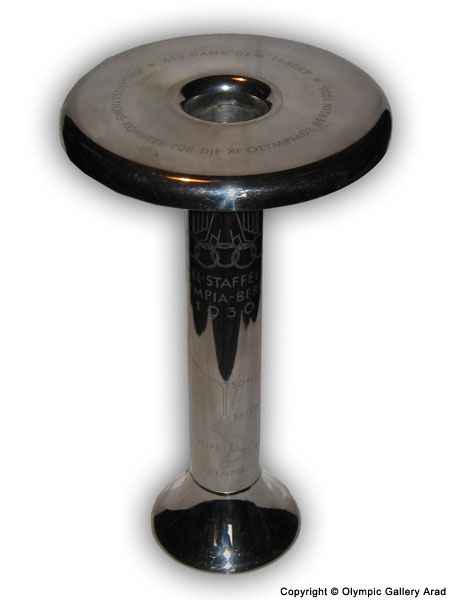
July 20, 1936: In Olympia, Greece, the rays of the sun off a reflector light the Olympic flame. For the first time, a torch is lit by runner and sent off on foot to the site of the games. Carl Diem, Hitler's Olympic organizer, had conceived the idea of running the flame by relay to Berlin, adding this enduring touch to the Olympic ceremonies. The torch is designed by German sculptor Lemcke and formed of polished Krupp steel-clad magnesium. Note: All six countries along the rely route, Yugoslavia, Hungary, Austria, Czechoslovakia, Greece and Bulgaria, will eventually be conquered by Hitler.
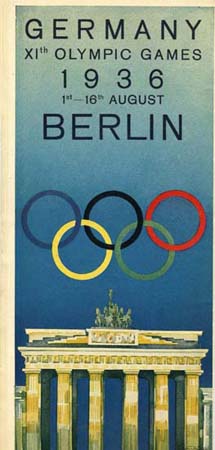
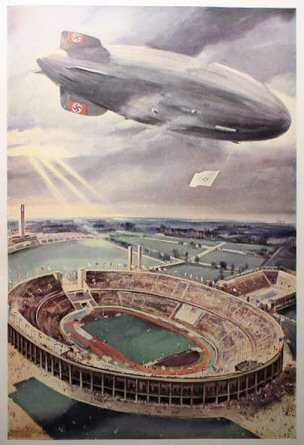
The Olympic Oath: "In the name of all competitors, I promise that we shall take part in these Olympic Games, respecting and abiding by the rules that govern them, in the true spirit of sportsmanship, for the glory of sport and the honor of our teams."
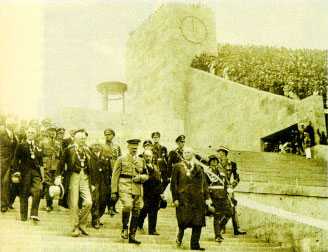
July 22, 1936: From a Reich Press Chamber directive: “German newspapers will print - at their own risk - reports from the Olympics released prior to the official press report.”
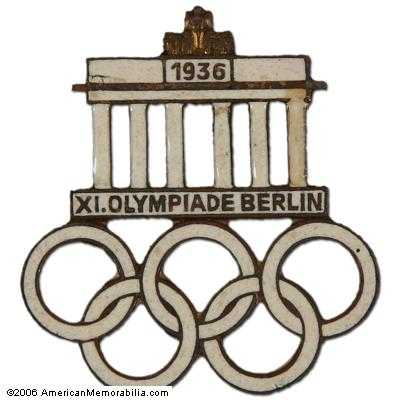
The Olympic Creed: "The most important thing in the Olympic Games is not to win but to take part, just as the most important thing in life is not the triumph but the struggle. The essential thing is not to have conquered but to have fought well."
"Sport came under the Propaganda Ministry, so Goebbels was responsible for staging the games, as well as for presenting an acceptable face of Germany to the world. For a brief period that summer, he swallowed his hatred of the Jews, had all the 'not wanted here' signs taken down, removed the brown, swastika-covered cabinets selling 'Der Stuermer' from street corners, and instructed the press to tone-down its anti-Semitism. A few books by forbidden authors such as Proust and Heinrich Heine reappeared in the shops. He even allowed two Jewish athletes to represent Germany. Forests of flags and banners blossomed everywhere, even on Jewish-owned department stores that were not allowed to fly the swastika but were now ordered to display the Olympic flag on their normally bare poles. Speer was called into service to design decorations for streets and buildings, draping the Propaganda Ministry and other places on the Wilhelmplatz in red velvet, green garlands and enormous gold ribbons. With all traces of institutionalized terror hidden away, it was a triumph of the propagandist's art at its most cynical." Anthony Read, from 'The Devil's Disciples: Hitler's Inner Circle.
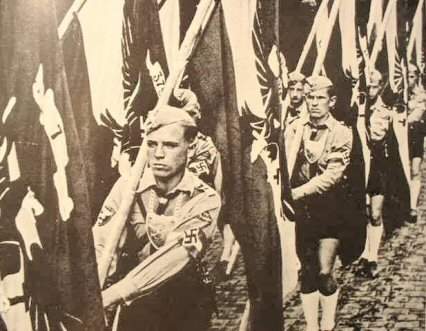
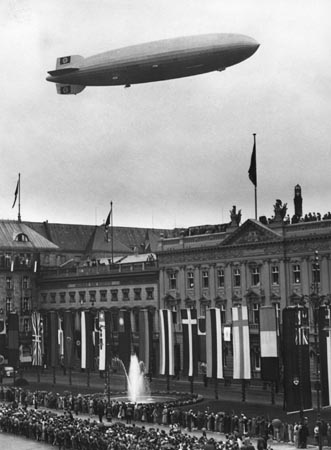
July 27, 1936: From a Reich Press Chamber directive: "The northern section of the Olympic village, originally utilized by the Wehrmacht [German army], should not be referred to as 'Kasernel' (the barracks), but will hereafter be called `North Section Olympic Village.'”
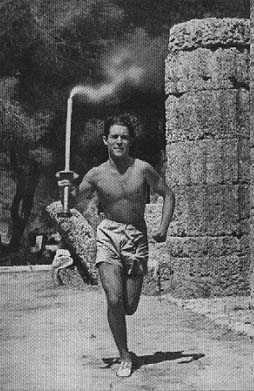
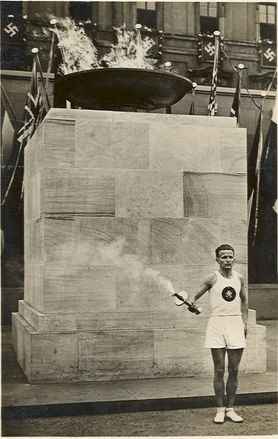
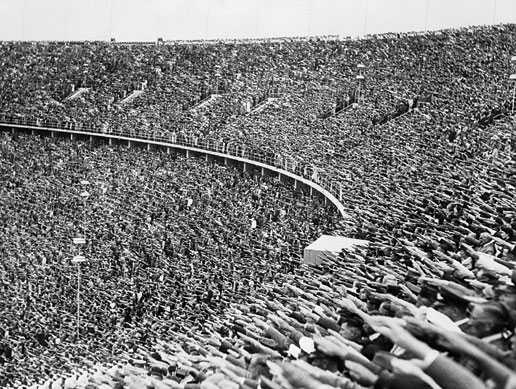
August 1, 1936: Hitler opens the XIth Olympiad. "The sportive, knightly battle awakens the best human characteristics. It doesn't separate, but unites the combatants in understanding and respect. It also helps to connect the countries in the spirit of peace. That's why the Olympic Flame should never die." - Adolf Hitler.
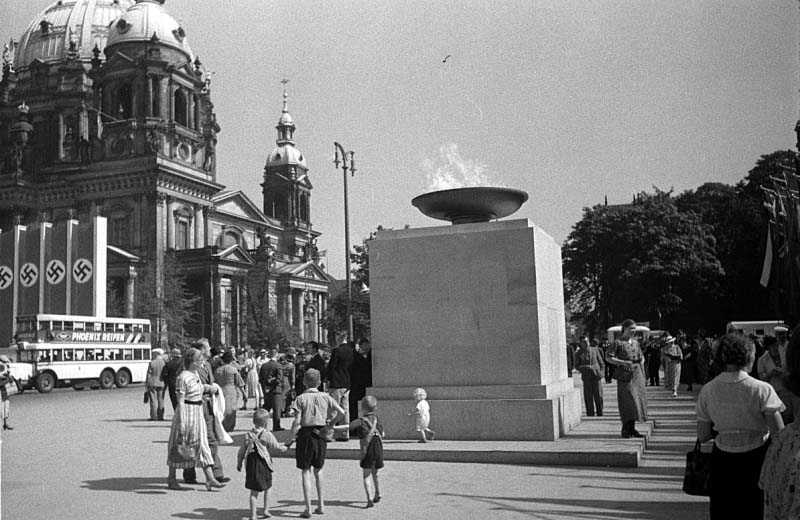
August 2, 1936: A record 110,000 spectators attend the first actual day of competition in Olympic stadium: 3,956 athletes from 49 nations. Hitler attends the games first day, receiving Olympic champions, German and non German, in his VIP box and congratulating them personally.
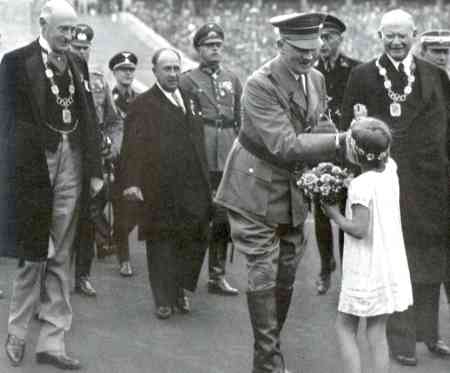
August 3, 1936: Comte Baillet-Latour, the chairman of the International Olympic Committee, reproaches Hitler for having winners paraded to his box, claiming that this violates Olympic protocol. Hitler apologizes and promises that from then on he will refrain from publicly congratulating the winners. Owens wins the first of his gold medals this day, and Hitler is criticized in the press for 'snubbing' Owens. "When I passed the Chancellor he arose, waved his hand at me, and I waved back at him. I think the writers showed bad taste in criticizing the man of the hour in Germany." From 'The Jesse Owens Story' by Jesse Owens.
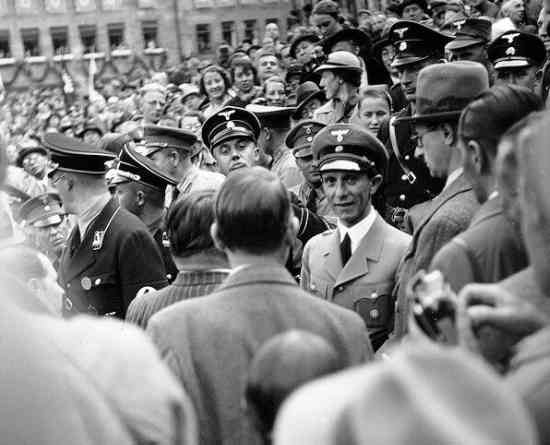
August 3, 1936: From a Reich Press Chamber directive: 'The racial point of view should not be used in any way in reporting sports results; above all Negroes should not be insensitively reported...Negroes are American citizens and must be treated with respect as Americans.“
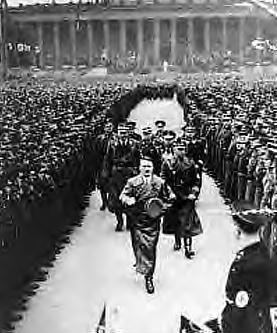
"There was very definitely a special feeling in winning the gold medal and being a black man. We destroyed (Hitler's) master race theory whenever we started winning those gold medals...There was some talk about the Olympics being boycotted because of what Hitler was doing to the Jewish people in Germany, but it was never discussed amongst the team members. We weren't interested in politics, you see, at all. We were only interested in going to Germany and winning." African-American athlete John Woodruff."
August 6, 1936: From Goebbels' newspaper Der Angriff: "If the American team had not brought along Black auxiliaries...one would have regarded the Yankees as the biggest disappointment of the Games."
August 15-16, 1936 Counter-Olympics: The World Labor Athletic Carnival, organized by the Jewish Labor Committee, is held on New York's Randall's Island to protest the holding of the 1936 Olympics in Nazi Germany. 400 athletes from across the country compete.
August 16, 1936: From Shirer's Berlin Diary: “I'm afraid the Nazis have succeeded with their propaganda. First, the Nazis have run the Games on a lavish scale never before experienced, and this has appealed to the athletes. Second, the Nazis have put up a very good front for the general visitors, especially the big businessmen.”

"No previous games had seen such a spectacular organization nor such a lavish display of entertainment. Göring, Ribbentrop and Goebbels gave dazzling parties for foreign visitors - the Propaganda Minister's 'Italian Night' on the Pfaueninsel near Wannsee gathered more than a thousand guests at dinner in a scene that resembled the Arabian Nights. The visitors, especially those from England and America, were greatly impressed by what they saw: apparently a happy, healthy, friendly people united under Hitler - a far different picture, they said, than they got from reading the newspaper dispatches from Berlin." - William L. Shirer, from 'The Rise and Fall of the Third Reich.
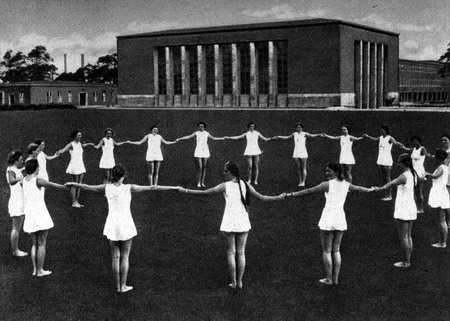
"Leni Riefenstahl made a film of the Olympic Games. The opening, set against vast cloud shapes, showed naked runners racing through mysterious mists to bring the sacred torch from Olympia to Berlin. She seemed to be groping for new mythologies, but quickly reverted to National Socialist mythology, with Hitler, like a Roman emperor, seated in the place of honor and by his very presence bringing splendor to the games. Nevertheless, in a film deliberately intended to give him the presiding role he appears remote and inaccessible..." --Robert Payne, from 'The Life and Death of Adolf Hitler.
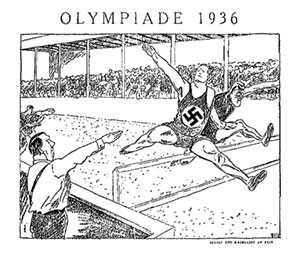
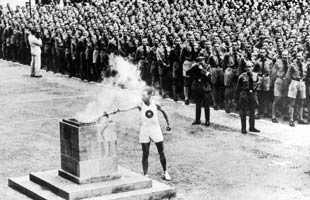
"...Hitler exulted over the harmonious atmosphere that prevailed during the Olympic Games. International animosity toward National Socialist Germany was plainly a thing of the past, he thought. He gave orders that everything should be done to convey the impression of a peace-minded Germany to the many prominent foreign guests. He himself followed the athletic contests with great excitement. Each of the German victories - and there were a surprising number of these - made him happy., but he was highly annoyed by the series of triumphs by the marvelous colored American runner Jesse Owens. People whose antecedents came from the jungle were primitive, Hitler said with a shrug; their physiques were stronger than those of civilized whites. They represented unfair competition and hence must be excluded from future games." --Albert Speer, from 'Inside the Third Reich.'
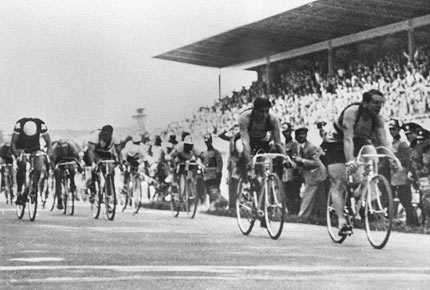
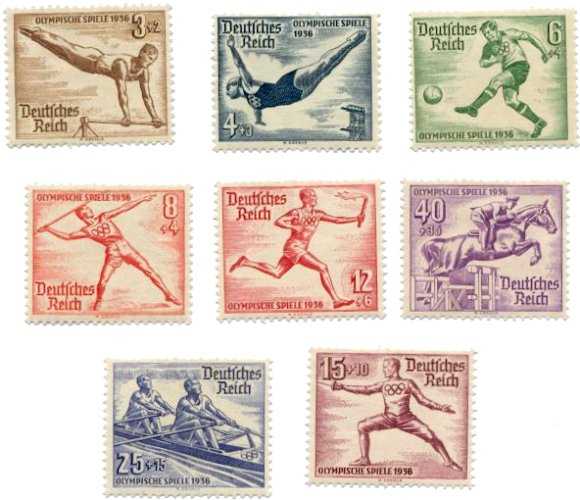
Germany won the 1936 Olympic Games. From Jesse Owens: an American Life, by William J. Baker: "In the unofficial point system devised by the American Olympic Committee (ten points for first place, and five, four, three, two and one for the next five finishes, the American male track and field team scored 203 points. Owens alone scored 40, almost two-thirds of the entire German teams total. Outside of track and field, however, the Germans dominated 87 - 1 in gymnastics, 65 - 6 in equestrian events, 43 - 4 in canoeing, 34 - 9 in boxing, 28 - 10 in weightlifting, 27 - 0 in cycling, 20 - 2 in yachting, and 19 - 10 in fencing. Only in wrestling and basketball did American athletes make a decent showing. When the president of the International Olympic Committee, Henri Baillet-Latour, finally proclaimed the closing of the Berlin games, both German and American scoring systems gave the Germans a decisive victory over the United States. The other European fascist power, Italy, finished a distant third in team point totals."
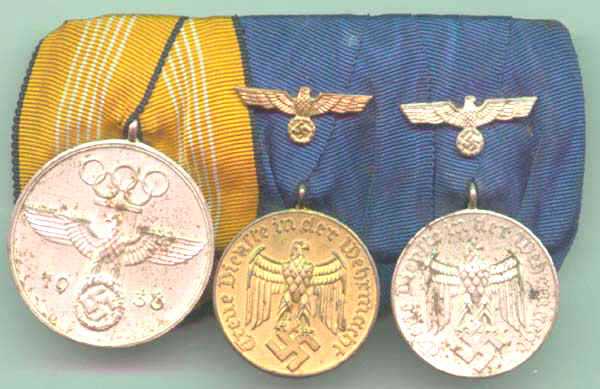
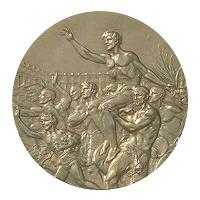
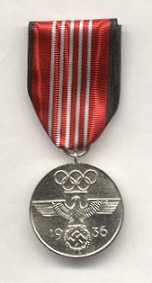
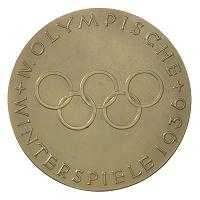
Here are the numbers:
Rank Nation Gold Silver Bronze Total
1. Germany 33 26 30 89
2. United States 24 20 12 56
3. Hungary 10 1 5 16
4. Italy 8 9 5 22
5-6. Finland 7 6 6 19
5-6. France 7 6 6 19
7. Sweden 6 5 9 20
8. Japan 6 4 8 18
9. Netherlands 6 4 7 17
10. Great Britain 4 7 3 14
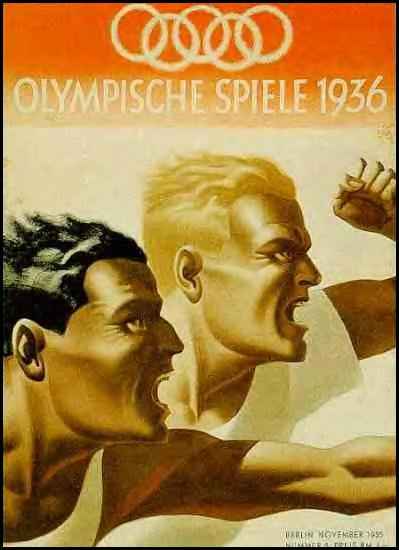
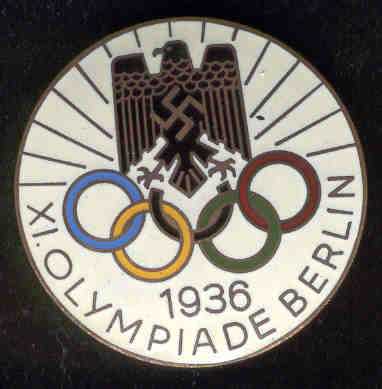
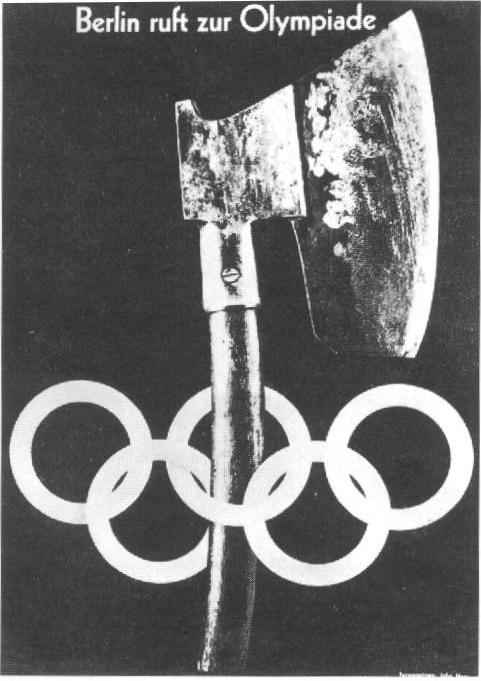
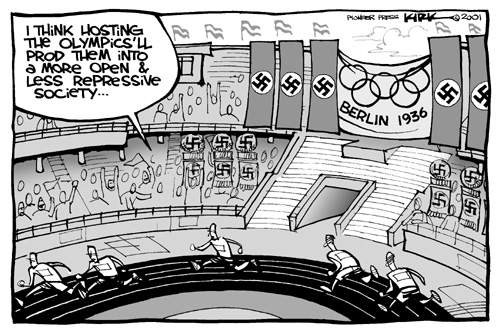
Post-Nazi Olympics
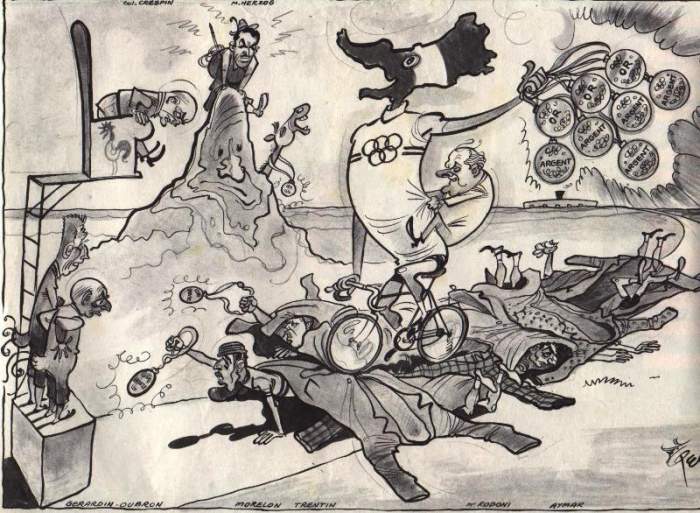
August 7, 1978: The Soviet Union invades Afghanistan. See: February 15, 1989.
January 23, 1980: From Jimmy Carter's State of the Union Address: " Three basic developments have helped to shape our challenges: the steady growth and increased projection of Soviet military power beyond its own borders; the overwhelming dependence of the Western democracies on oil supplies from the Middle East; and the press of social and religious and economic and political change in the many nations of the developing world, exemplified by the revolution in Iran...now we face a broader and more fundamental challenge in this region because of the recent military action of the Soviet Union...The implications of the Soviet invasion of Afghanistan could pose the most serious threat to the peace since the Second World War. The vast majority of nations on Earth have condemned this latest Soviet attempt to extend its colonial domination of others and have demanded the immediate withdrawal of Soviet troops...The Soviet Union must pay a concrete price for their aggression. While this invasion continues, we and the other nations of the world cannot conduct business as usual with the Soviet Union...I have notified the Olympic Committee that with Soviet invading forces in Afghanistan, neither the American people nor I will support sending an Olympic team to Moscow. The Soviet Union is going to have to answer some basic questions: Will it help promote a more stable international environment in which its own legitimate, peaceful concerns can be pursued? Or will it continue to expand its military power far beyond its genuine security needs, and use that power for colonial conquest? The Soviet Union must realize that its decision to use military force in Afghanistan will be costly to every political and economic relationship it values..."
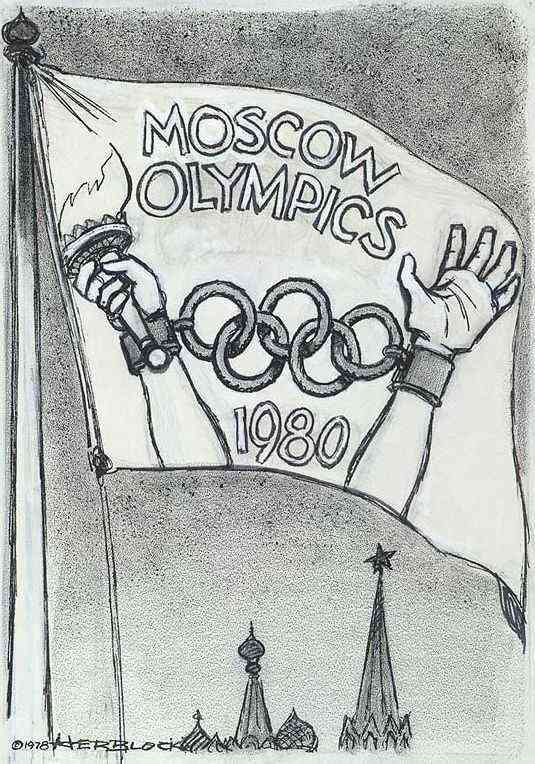
February 1980: US Secretary of State Cyrus Vance informs the IOC that: "We will oppose the participation of an American team in any Olympic Games in the capital of an invading nation. This position is firm. It reflects the deep convictions of the United States Congress and the American people."
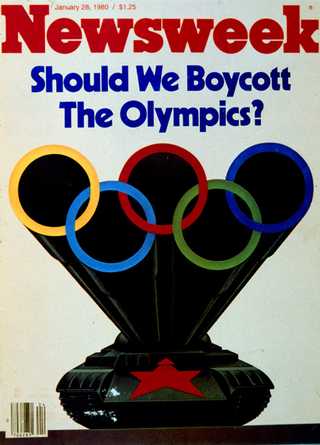
March 21, 1980: President Carter tells US athletes of his support for the Olympic boycott: "I understand how you feel...What we are doing is preserving the principles and the quality of the Olympics, not destroying it." Note: 81 nations will be represented at the Moscow Games, some under protest. 61 will take part in the US led boycott.
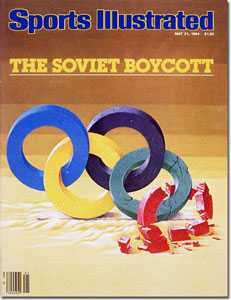
Joke: President Carter was up working late one night when Teddy Roosevelt’s ghost drifted into the Oval Office. Jimmy jumped up and offered him his chair. TR: “No, you’re the President now; I’m just haunting the place. How’s it going?” Carter: “Not too good. The Iranians have imprisoned fifty-two of our diplomatic personnel.” TR: “So you sent in the Marines, right?” Carter: “Uh, no, but I registered strong protest at the United Nations.” TR: “Anything else?” Carter: “Well, the Russians just invaded Afghanistan." TR: “And of course you retaliated with every weapon in our arsenal.” Carter: “No, but I’ve withdrawn our athletes from the Olympics.” TR: “The next thing you’re going to tell me is you’ve given back the Panama Canal.”
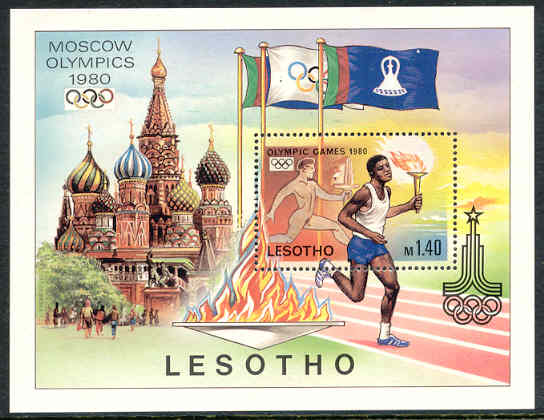
March 28, 1980: White House Statement on Prohibition of US Transactions With Respect to the Olympic Games. "The invasion of Afghanistan by the Soviet Union and the continuing interference by the Soviet Union in the internal affairs of that country constitute an unusual and extraordinary threat to the national security, foreign policy, and economy of the United States. An overwhelming majority of the U.N. General Assembly, including countries of varying political and religious persuasions, economic strength, and geographical circumstance, have joined in a condemnation of the Soviet Union's aggression. In response to the Soviet action, the President has taken certain national defense measures. He has also imposed a number of restraints on normal economic, cultural, and political exchanges with the Soviet Union. These have included an embargo on grain and other agricultural products, an embargo on phosphate shipments, and the application of more rigorous restrictions on the export of high technology and other strategic commodities. With respect to the Moscow summer Olympics, the President has announced that neither he nor the American people would support the participation in the Olympics by the U.S. Olympic Team, and he has urged U.S. businesses not to participate in or contribute to the holding of the summer games in Moscow. The President is now taking additional steps to make clear the United States Government's firm opposition to participation in the Moscow summer games. He has today directed the Secretary of Commerce to take the following actions: 1. To deny all pending validated license applications for goods and technology to be used in support of or in connection with the summer Olympic games in Moscow; 2. To revoke all outstanding export licenses for Olympic-related exports that have not already been shipped; 3. To impose validated license controls on all exports not now requiring validated licenses to be used in support of or in association with the summer Olympic games in Moscow. No such licenses shall be granted; 4. To prohibit other transactions and payments associated with all Olympic related exports. Among other transactions, the order will bar NBC from making any further payments or exports under its contracts relating to the United States television rights for the Olympic games. Note: NBC has previously announced that it would not exercise these rights if no United States team took part in the games."
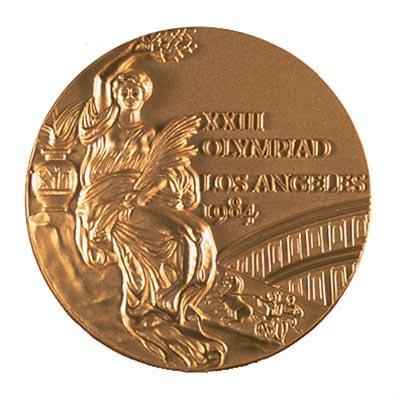
"The Olympic Games were set for July 1984 in Los Angeles. We knew the Soviets, with their sense of reciprocity, would have the US boycott of the 1980 Olympics in Moscow on their minds. Nevertheless, we proceeded on the assumption that the Soviets would attend. After an April 24 meeting of the Olympic Committee in Lausanne, the head of the Soviet National Olympic Committee announced, 'There will be no boycott. That is our principal position. The Soviet Union never intended nor intends at the present to take a political decision of a boycott.' But on May 8, the Soviets reversed themselves, issuing a statement in Tass saying that the United States was conniving with 'extremist organizations' that aimed to create 'unbearable conditions' for their delegation and athletes, an apparent reference to their fear that anti-Soviet demonstrations by human rights activists would embarrass them in Los Angeles. We had, in fact, bent over backward to meet all Soviet concerns and had developed a plan for 17,000 people to be involved in Olympic security. We were prepared to spend up to $50 million to assure security, $1 million of which was for the Soviet delegation, including $500,000 to be certain that the Soviet ship that was to house their officials and supporters would have the utmost security. The Soviets knew all this. Nevertheless, claiming inadequate security for their athletes, they announced that they would not attend the Olympics. We denounced their action as unjustified and a 'blatant political action.' We knew that security was not the problem: the Soviet action was their way of retaliating against Jimmy Carter's decision to boycott the 1980 Olympics in Moscow as a protest against the Soviet invasion of Afghanistan. The Soviet statement implied that Moscow hoped to heighten tensions and hurt President Reagan's chances for reelection. That didn't pan out for Moscow." From 'Turmoil and Triumph' by George P. Shultz."
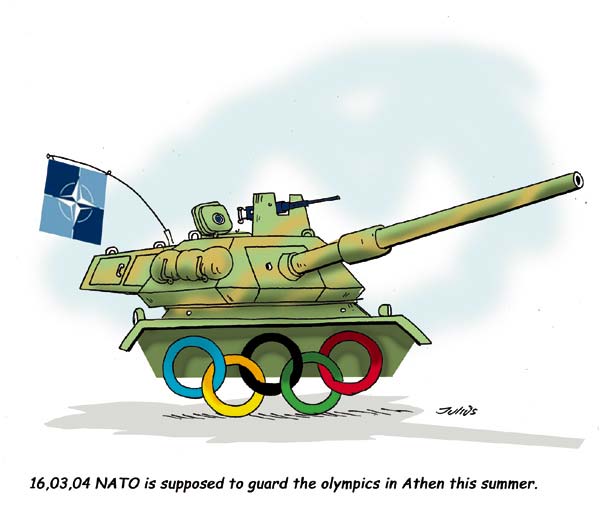
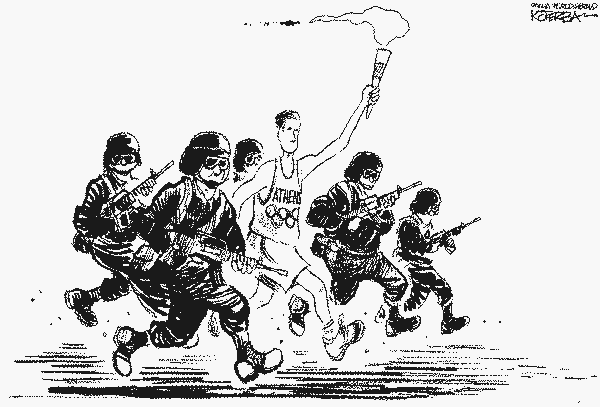
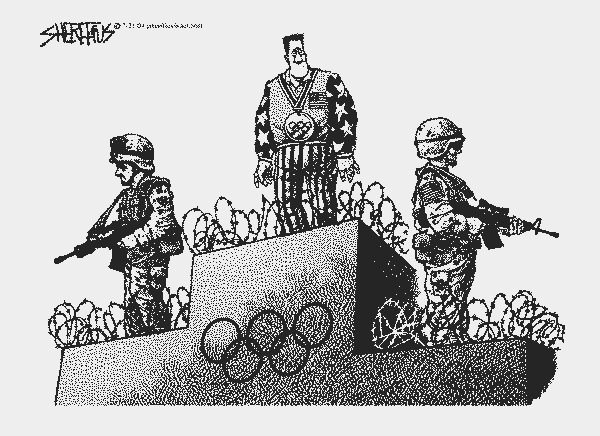

May 15, 1988: The Soviet Union begins their military withdrawal from Afghanistan.
February 15, 1989: The Soviet Union completes their military withdrawal from Afghanistan.
October 7, 2001: The US invades Afghanistan.
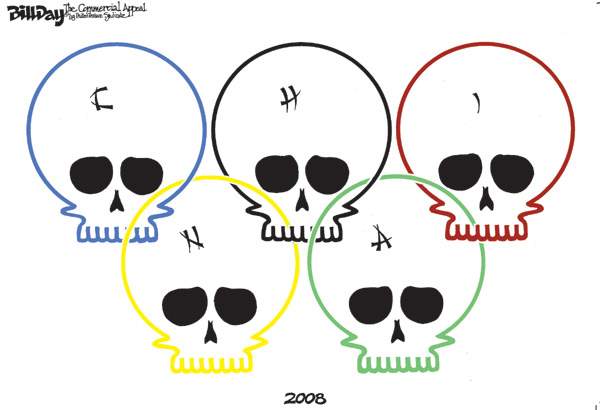
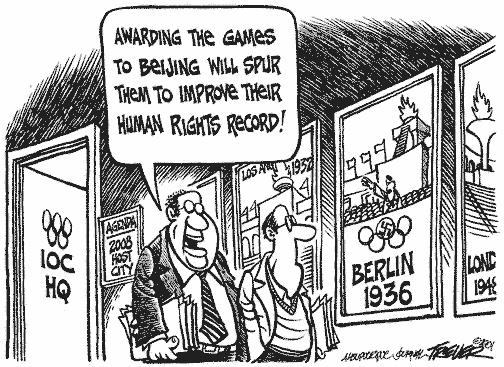
April 3, 2008: From a joint statement of Save Darfur, Genocide Intervention Network and the ENOUGH Project: "Beijing should not be allowed to bask in the warm glow of peace and brotherhood associated with the opening games if China is still underwriting atrocities in Darfur and still has not done what it should to bring peace and security to Sudan."
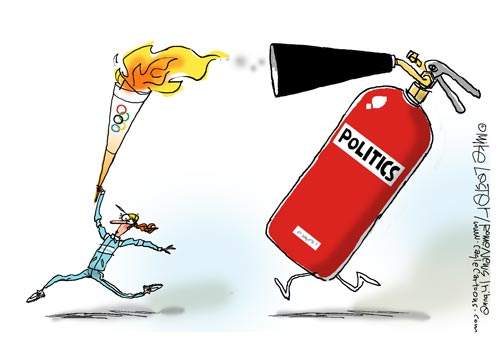
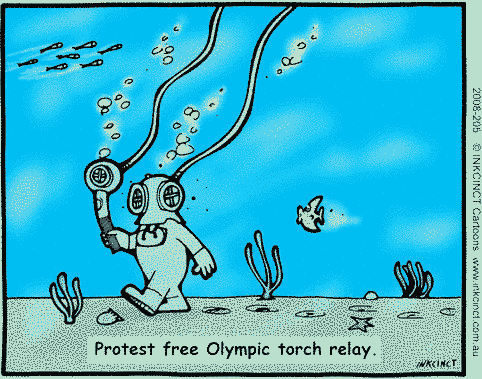
April 13, 2008: Former US President Jimmy Carter: "...the Soviet Union had brutally invaded and killed thousands and thousands of people, who ... in Afghanistan then. They were threatening to go further south and take over other countries. Fifty-four nations in the world decided to boycott the Olympics. Two-thirds of the US Olympic Committee, a relatively independent group, decided not to go. The Congress voted overwhelmingly not to go. And that was a completely different situation. But I hope that all the countries will go ahead and participate in the Olympics in Beijing."
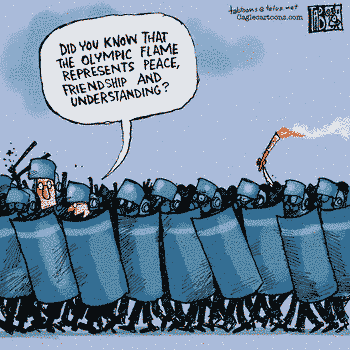
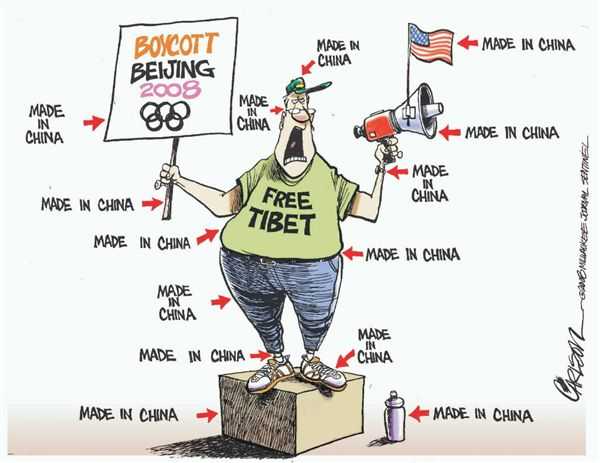
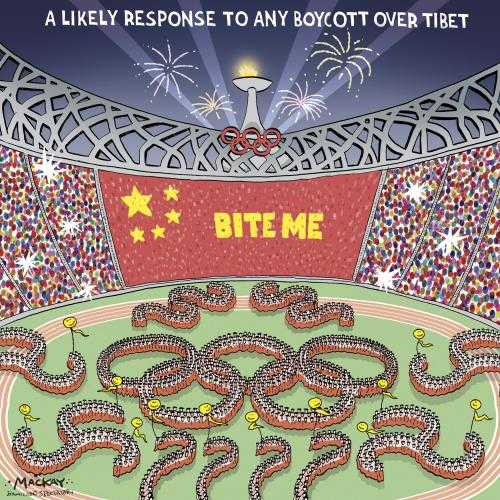
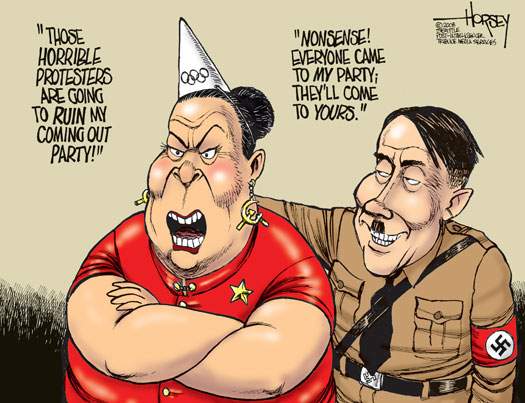
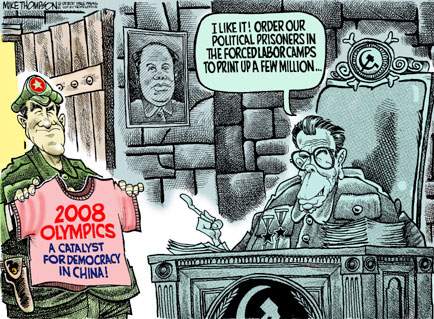
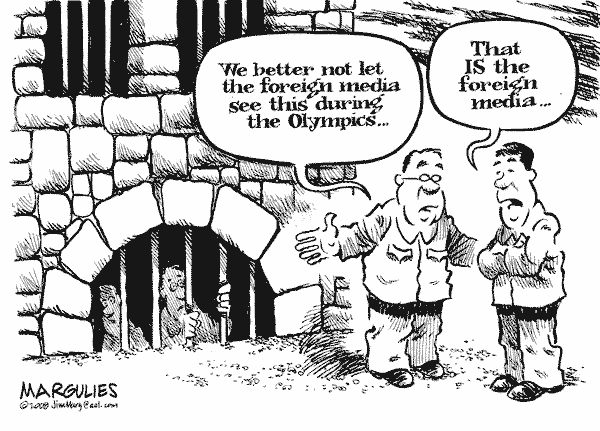
Senator Barack Obama: "If the Chinese do not take steps to help stop the genocide in Darfur and to respect the dignity, security and human rights of the Tibetan people, then the president should boycott the opening ceremonies."
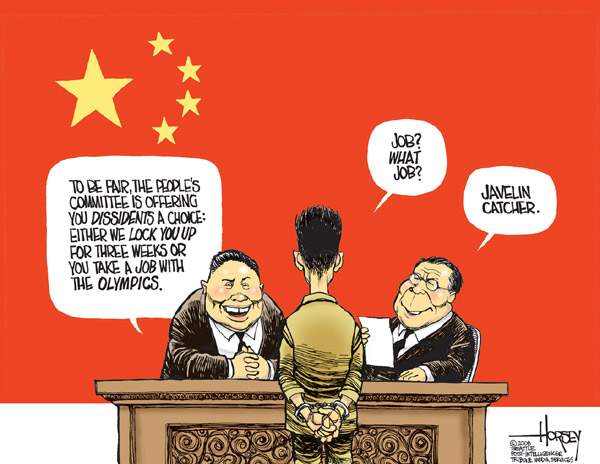
April 15, 2008: From an Associated Press interview with former US Vice-President Walter Mondale: ''What is happening in Tibet is bad, really bad. The Dalai Lama is making a very modest demand - and that is they be allowed some sort of cultural independence and some survivability as a people...They're now a big player throughout Asia and the world, and we need to try to improve our cooperative relationship with them...We really made a shambles out of that Olympics,'' Mondale said Monday. ''When we boycotted the Moscow Olympics in '80, we hoped it would help shatter and shake the Soviet government, and maybe help bring it down. Which happened, not necessarily because of that...I believe that our young athletes, who sacrificed so much, deserve great credit for their part in denying respectability to such an odious regime...The old Soviet Union regime was really bad, and their invasion of Afghanistan was really a dangerous, serious disruption of international law and stability. The Chinese have not done that...It's really quiet, though (diplomatically)...I don't think the administration is doing much. The president ought to be personally involved with this.''
